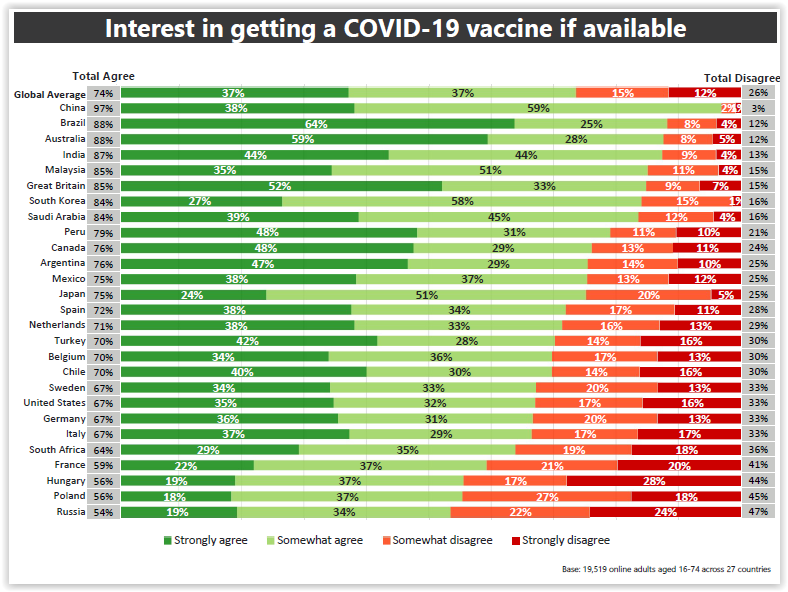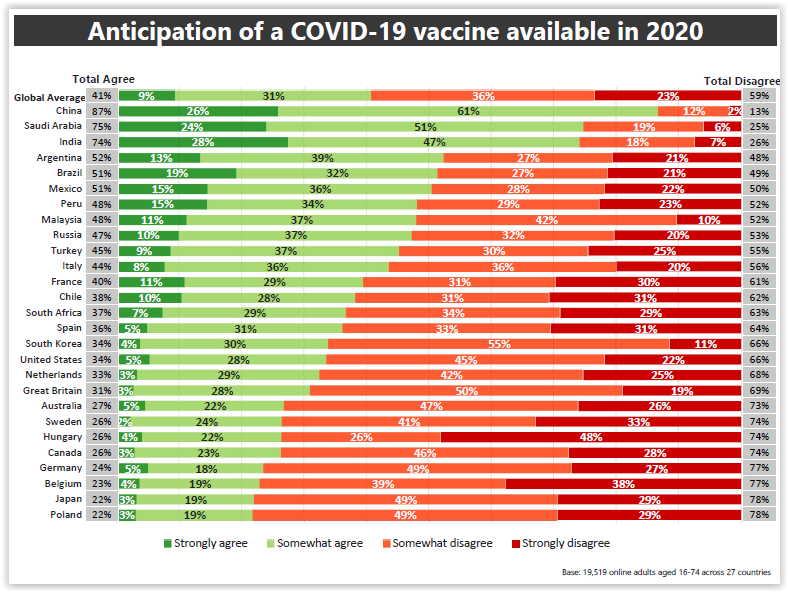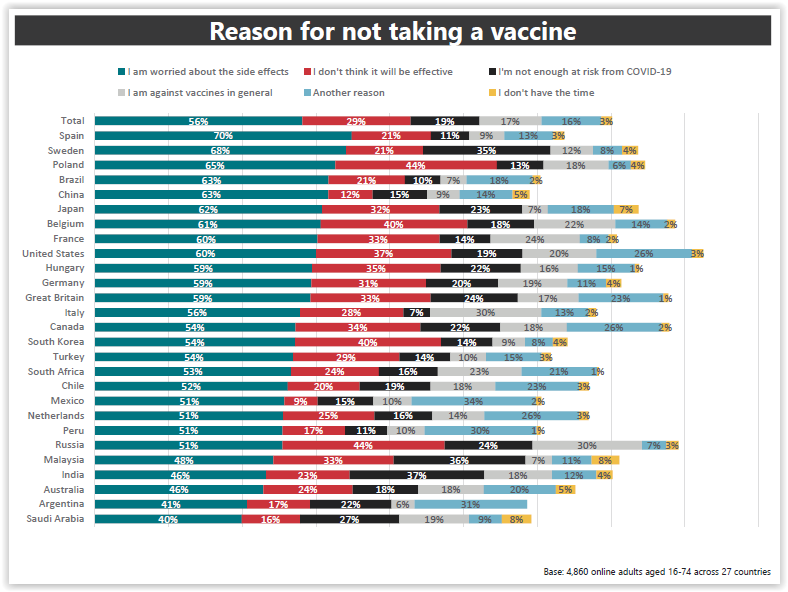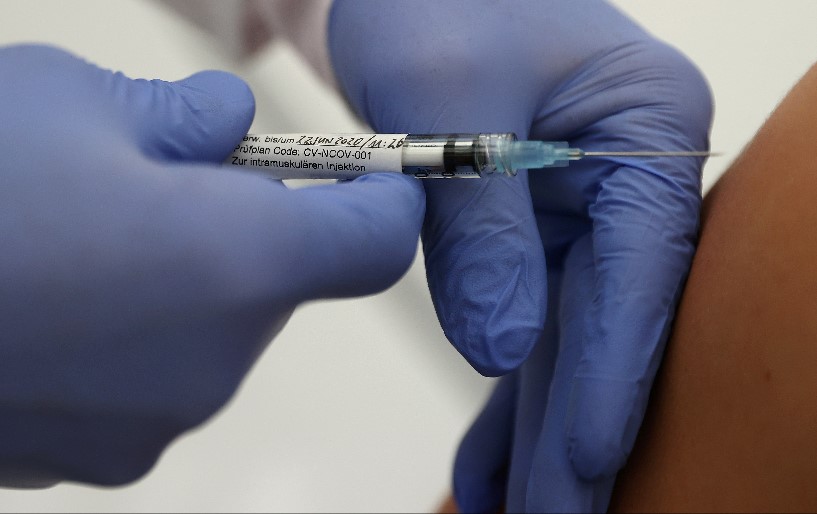KUALA LUMPUR, Sept 1 — Malaysia ranked among the top six countries with the highest interest in getting a Covid-19 vaccine should it become available, as expressed by 85 per cent of Malaysians in a global survey.
However, according to the Ipsos poll for the World Economic Forum (WEF), only slightly more than a third of Malaysians, at 35 per cent, were resolute in getting vaccinated against coronavirus, or strongly agreed that “if a vaccine for Covid-19 were available, I would get it”.
About half, or 51 per cent, somewhat agreed, while 15 per cent disagreed (11 per cent somewhat and 4 per cent strongly). (Results do not sum up to 100 per cent because it may be due to rounding, multiple responses, or the exclusion of don’t knows or not stated responses).
The Ipsos survey titled “Global Attitudes on a Covid-19 Vaccine” — which was conducted from July 24 to August 7 in 27 countries — listed China as a standout country, with 97 per cent of respondents there saying they would get vaccinated against Covid-19 if a jab was available, followed by Brazil (88 per cent), Australia (88 per cent), India (87 per cent), Malaysia (85 per cent), and Great Britain (85 per cent).

Countries with the lowest intent in getting vaccinated against Covid-19 were Russia (54 per cent), Poland (56 per cent), Hungary (56 per cent), and France (59 per cent). In most countries, those who agreed with getting a vaccine outnumbered those who disagreed by a significant margin (exceeding 50 points in 12 out of 27 countries).
The global average of adults who said they were willing to get a Covid-19 jab if it were available was 74 per cent, or three in four adults globally. But only 37 per cent were firm in their view.
“The 26 per cent shortfall in vaccine confidence is significant enough to compromise the effectiveness of rolling out a Covid-19 vaccine.
“It is therefore critical that governments and the private sector come together to build confidence and ensure that manufacturing capacity meets the global supply of a Covid-19 vaccination programme. This will require cooperation between researchers and manufacturers and public funding arrangements that remove restrictions to vaccine access,” said Arnaud Bernaert, Head of Shaping the Future of Health and Health care, at the WEF, in a statement on the release of the survey results today.

Less than half of Malaysians surveyed, or 48 per cent, believed that a Covid-19 vaccine would be available for them before the end of 2020.
China was a standout again, with 87 per cent of Chinese adults surveyed expecting a vaccine against coronavirus to be ready this year. This was followed by Saudi Arabia (75 per cent) and India (74 per cent).
Only an average of 41 per cent of adults worldwide anticipated a Covid-19 vaccine this year.
Among those who said they would not get vaccinated against Covid-19, the most frequently cited reason was a fear of side effects, followed by perception of effectiveness.
Among Malaysians who were unwilling to get a Covid-19 vaccine, 48 per cent of them expressed worry about side effects, 36 per cent felt they were not sufficiently at risk from coronavirus, 33 per cent doubted its effectiveness, 8 per cent said they wouldn’t have the time, 7 per cent were against vaccines in general, while 11 per cent cited another reason.

Ipsos, the world’s third largest market research company, interviewed 19,519 adults aged 18 to 74 in the United States, Canada, Malaysia, South Africa, and Turkey, and those aged 16 to 74 in 22 other countries on its Global Advisor online survey platform between July 24 and August 7 this year.
The Malaysia sample comprised 500 individuals, described as “more urban, more educated, and/ or more affluent than the general population”, as Ipsos said the survey results for Malaysia and certain countries like mainland China, India, and Russia, among others, “should be viewed as reflecting the views of the more ‘connected’ segment of these population”.








